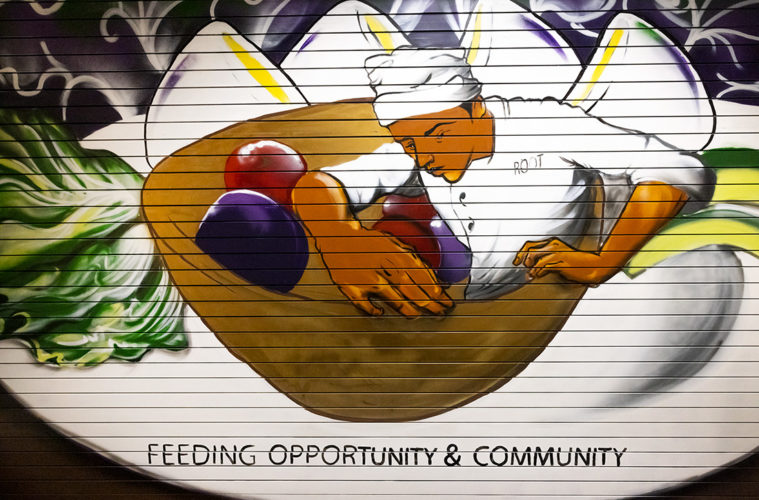Since 2017, the Salem nonprofit Root has fed the community both literally and figuratively, graduating 124 young people from its 14-week food service job training and life skills program, while also putting those students and alumni to work in its BONS-winning catering and event space services, its café, and at its free monthly “Meet and Eat” community meal program.

But on March 13, 2020, the COVID-19 shutdown forced Root to hit pause on its programs, even though the community’s needs were greater than ever: restaurants were shuttered, vulnerable people couldn’t venture out to the grocery store, and even programs like Meals on Wheels suffered.
“We temporarily closed our doors. But only for a couple of days,” Root’s executive director M. Scott Knox says. “By March 20, that following Friday, we launched what has now become our Community Catering.”
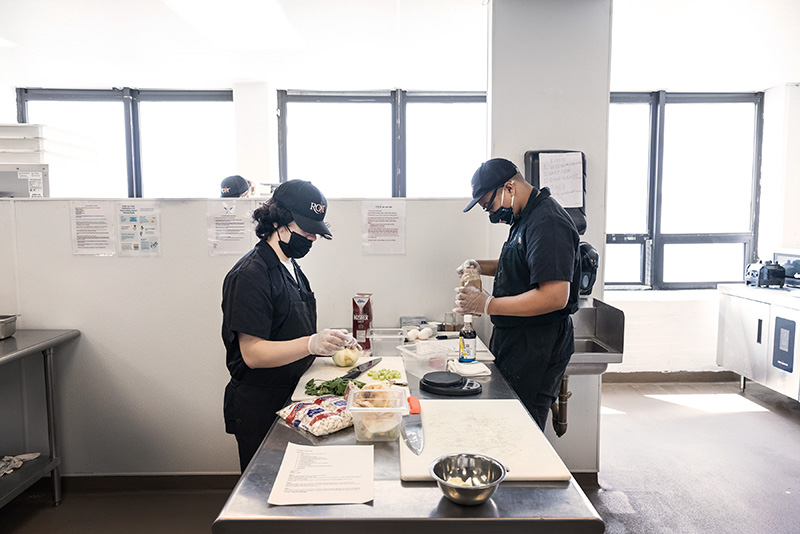
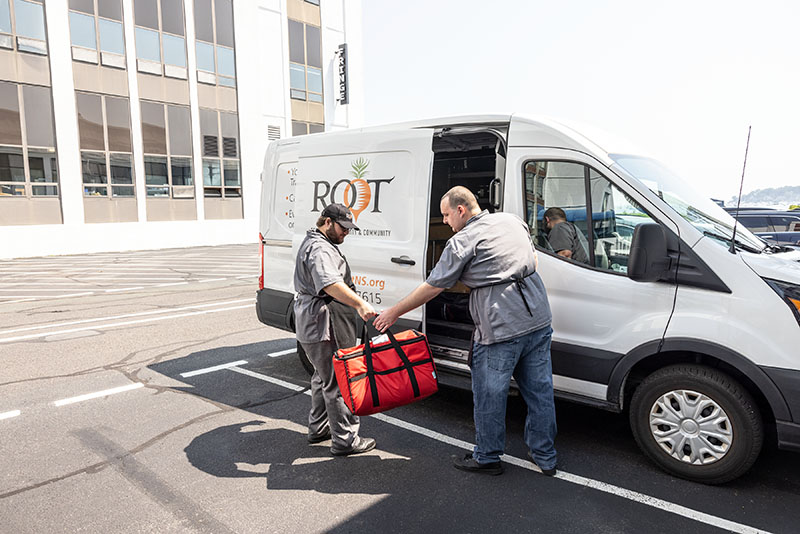
Root’s training program supports people ages 16 to 26, who have one or more barriers to employment, such as those who have dropped out of high school, have been in the foster care system, or who have been court involved.
Now, many of Root’s alumni are working for Community Catering, Root’s food insecurity initiative, which, at press time, had prepared and delivered more than 33,000 nutritious, culturally inclusive meals since the start of the pandemic.
“Every obstacle is also an opportunity,” says Mike May, and Community Catering is a great case in point.
The COVID-19 obstacle provided the opportunity to create a brand-new program that boasts “a triple social impact,” says Knox.
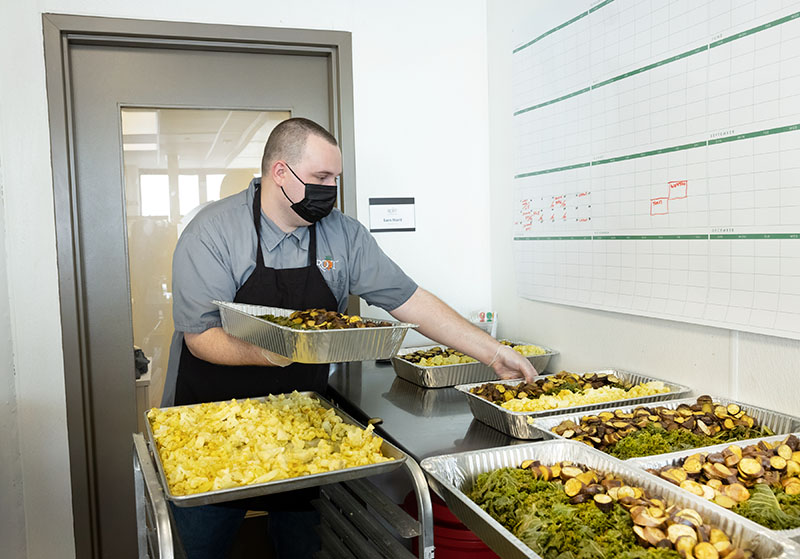
First, Community Catering produces and delivers 500 to 700 meals every week for people in need, including housebound seniors and people who live in group homes or residential facilities like Lifebridge. Second, Community Catering provides employment and additional learning opportunities for Root alums, creating above-minimum-wage employment for young people who have been left out of the workforce. Third, Knox says Root has been increasingly able to source produce from local growers.
One of Root’s most vocal champions is Salem Mayor Kimberly Driscoll (who is also one of the many volunteers who has helped deliver meals throughout the community).
“Root has been just an amazing organization in our community since its inception,” she says. “I think this last year with the pandemic just showed you how important organizations like this are from a community perspective when comes to dealing with food insecurity.”
Even though the pandemic is slowing down, Root will continue its Community Catering program, and just received a $350,000 Cummings Foundation Grant to do so.
It’s also restarting some of the programs that have been paused, such as its monthly “Meet and Eat” community meal program, Mayor Driscoll says.
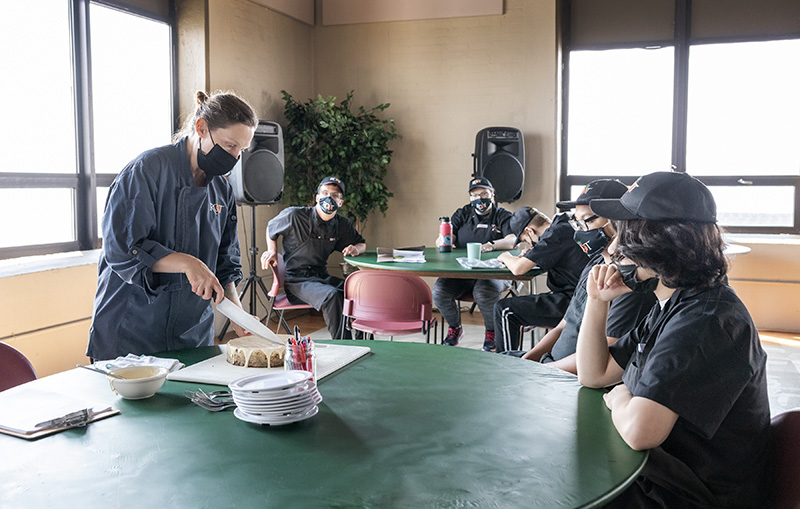

Despite the changes that Root, and the entire community, has faced over the past year, the organization is first and foremost driven by the young people it serves. As part of their hands-on culinary training, Root students also get a chance to train at local partner restaurants, like FRANK in Beverly, which is helmed by the award-winning chef Frank McClelland.
McClelland, who’s also on Root’s board, helps students progress and learn at their own pace on the job.
“It couldn’t be a better fit to support and nurture individuals in my field and bring them up and bring them into whatever they’d like to do in the industry,” he says. “I just feel that we couldn’t do anything better for the community than to find individuals that are searching for a creative life and helping them get a start.”
The students also receive a weekly stipend during their training program, along with receiving one-on-one job coaching, and getting training on skills like resume writing, mock interviews, conflict resolution, and personal financial literacy.
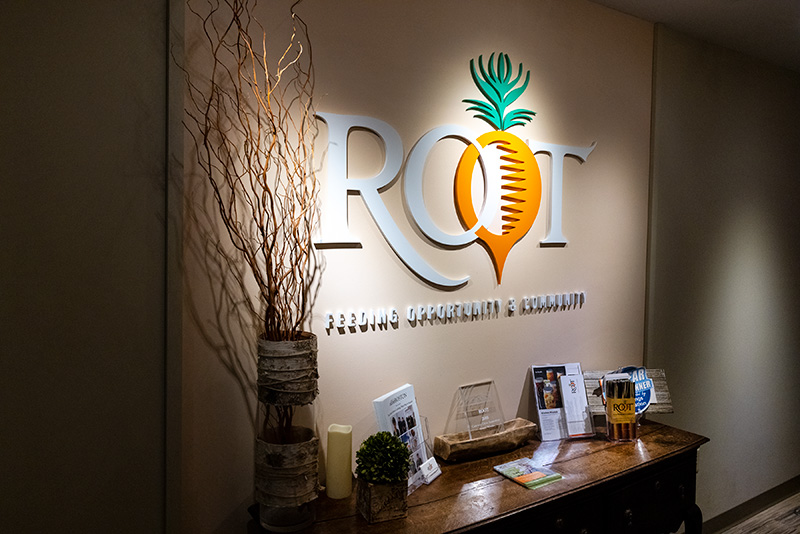
Root alumni often advance to additional culinary training or to working at local restaurants, and many go on to work for Root itself. That was the case for 19-year-old Eboni Williams, who graduated from Root in 2018 and Salem High School in 2020 and now works as a culinary assistant for Root, supporting youth learning and skill development through peer mentorship, and is also a member of Root’s youth program team.
She says Root feels less like work and more like a community and family who are always checking in on her. Root has also helped her make up her mind about pursuing a career in food service.
“It feels more like a second home than a job. And I’ve gotten to learn about a whole bunch of different foods, taste a whole bunch of different flavors, and I got to learn stuff outside of culinary. I get to be a part of a team and practice my communication skills,” she says. “Root is setting me up for success because they give me skills, resources, and offer me a support system.”
CONTACT rootns.org

